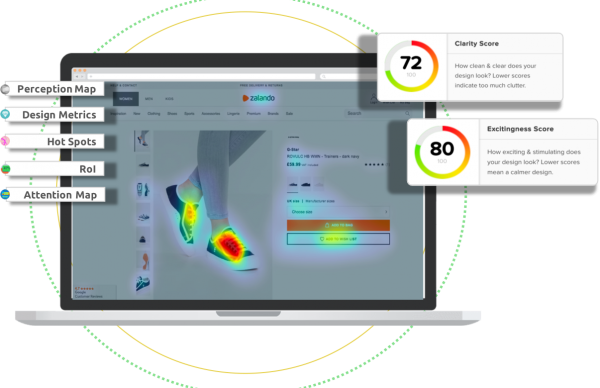We value your privacy
This website uses cookies to ensure you get the best experience on our website.
 Skip to main content
Skip to main content
This website uses cookies to ensure you get the best experience on our website.
To some, AI is another fad to follow, a big-budget trick used by fancy agencies and businesses. To others, it’s laced with fear, signalling impending doom and loss of jobs. But underneath clever marketing and vociferous opponents, there’s one single truth: we’re moving into a world that AI will dominate.

72% of business leaders call AI a business advantage, stating it’s going to be fundamental in the future. Out of businesses with an innovation strategy, 61% use AI to find opportunities in data that would be missed without it. 77% of consumers use AI-powered services or devices. Out of a survey of 6,000 people, 61% believe AI will make the world a better place. And AI in businesses is predicted to increase labour productivity by 40%, helping people become more efficient.
AI is growing across all departments in businesses, and in businesses across all sectors. For example, by 2020 AI will be used to manage up to 85% of customer interactions; an AI-powered system created by MIT could tackle up to 85% of potential cyberattacks; it has the power to alleviate menial tasks like timesheets, scheduling and paperwork; and by 2020 at least 30% of companies will use AI in at least one part of their sales processes.
So, to get the benefits of AI it’s important to start early. According to a study by Harvard Business Review, 30% of early AI adopters say they’ve achieved revenue increases, using it to gain market share or expand products or services. These early adopters are also 3.5 times more likely to grow their profit margins.
This is the AI economy, and it’s time to get involved.
Before adopting AI technologies it’s important to remember that they’re supposed to help you – not hinder you. Running before you can walk is a quick way to failure, and success from AI comes from trialling and testing in small areas, before rolling it out across different departments. In future blogs, we’ll look at the best way to do this, so stay tuned.
At EyeQuant, we believe the easiest and most accessible way for businesses to employ AI and benefit from it is through testing. Whether it’s conversion rate optimisation or heat-mapping, you can use the power of AI to improve your analytics.
Global consultants, McKinsey, carried out a detailed study into the applications and value of deep learning and AI. After analysing over 400 use cases across 19 industries and nine business functions, the team discovered that it delivers a huge boost to traditional analytics. In 69% of the use cases, deep neural networks improved performance compared to other techniques. And ultimately, these modern deep learning AI techniques can boost the value of traditional analytics techniques from anywhere between 38% to 128%.
Through intelligent testing – the combination of deep learning and AI with neuroscience – you can predict what affect your marketing will have on your audience. You can improve your revenue, you can save time, you can increase conversions and you can remove subjectivity.
McKinsey estimates that the AI techniques they studied could potentially create between $3.5 trillion and $5.8 trillion annually across the functions and industries included. It’s a huge amount – and it’s something you can be part of.
As McKinsey points out: “Neural AI techniques excel at analysing image, video, and audio data types because of their complex, multidimensional nature”.
So, when you combine this power with the human-led behavioural insights of neuroscience, the result is a deep understanding into what works, what doesn’t – and most importantly, why. And this is where we can help you. We’ve fused the results of decades of neuroscience research with AI, to help brands predict how customers engage and respond to designs.
The simplicity of how our software works gives you an easy route into the AI economy: there’s no complex set-up or lengthy code requirements. And once you start with AI – and you see the difference it makes – you can start putting business cases together to roll out more AI-driven strategies and programs across varying departments.



Check out our latest top tips on how you can use EyeQuant to spy on your competitors, analyse mobile...
Read more
In our latest blog we explore how to use neuroscience to help create higher performing digital products.
Read more
Figma is the go-to prototyping platform for many UX and web designers – and not without reason. Its functionality,...
Read more